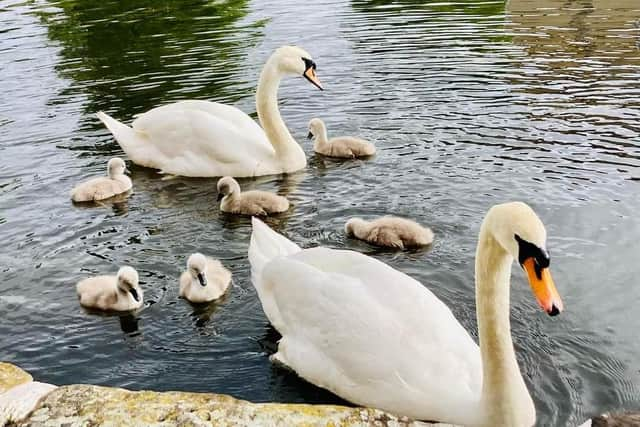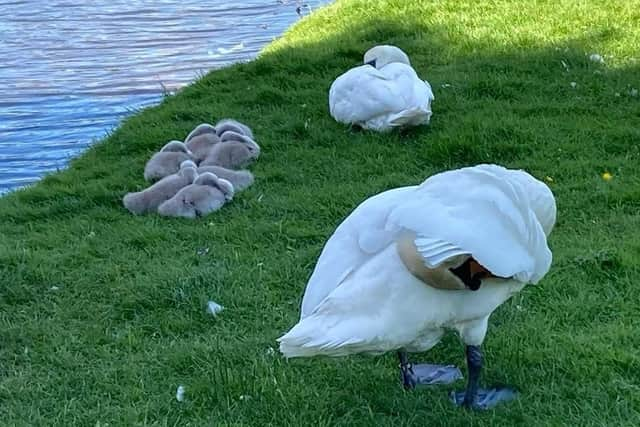Avian flu warning after six cygnets reported dead on Lancaster Canal
and live on Freeview channel 276
Locals have reported on social media this week that the cygnets have died, and a further one is unwell, with others confirming witnessing deceased swans.
After seeing this news, Joshua Brandwood has shared a warning that the reason for the deaths could be avian flu and has urged others to be careful around the swans.
Advertisement
Hide AdAdvertisement
Hide AdLast year he helped rescue a sick swan which later died due to the virus.


"Please be careful and avoid touching or going near any swans/other types of birds that look poorly," he said.
"If you see a swan drowning or acting in an unusual way then they may have avian flu."
Last year Joshua jumped into the canal near the White Cross after spotting a young swan in difficulty.
Advertisement
Hide AdAdvertisement
Hide AdIt was taken to Bay Vets in Bowerham, but sadly died on arrival.


The Department for Environment Food & Rural Affairs (Defra) later performed an autopsy which confirmed the swan died due to avian flu.
Thankfully, Joshua remained asymptomatic and well.
"I was simply trying to be a good samaritan, but put myself at risk,” he said. “I know it's hard to witness an animal in distress, but the best thing to do in this case is call Defra to arrange a collection.
"I appreciate it's rare for humans to contract avian flu, but it can and has occurred in the past so please don't put yourself at risk."
Advertisement
Hide AdAdvertisement
Hide AdWhat is avian flu?
Although avian flu has largely been an issue in the south and east of England, cases have been confirmed in Lancashire, including one in Leyland this week.
It spreads from bird to bird by direct contact or through contaminated body fluids and faeces. It can also be spread by contaminated feed and water.
The UK Health Security Agency (UKHSA) has said that avian influenza is primarily a disease of birds and the risk to the general public’s health is very low.
Do not touch or pick up any dead or visibly sick birds that you find.